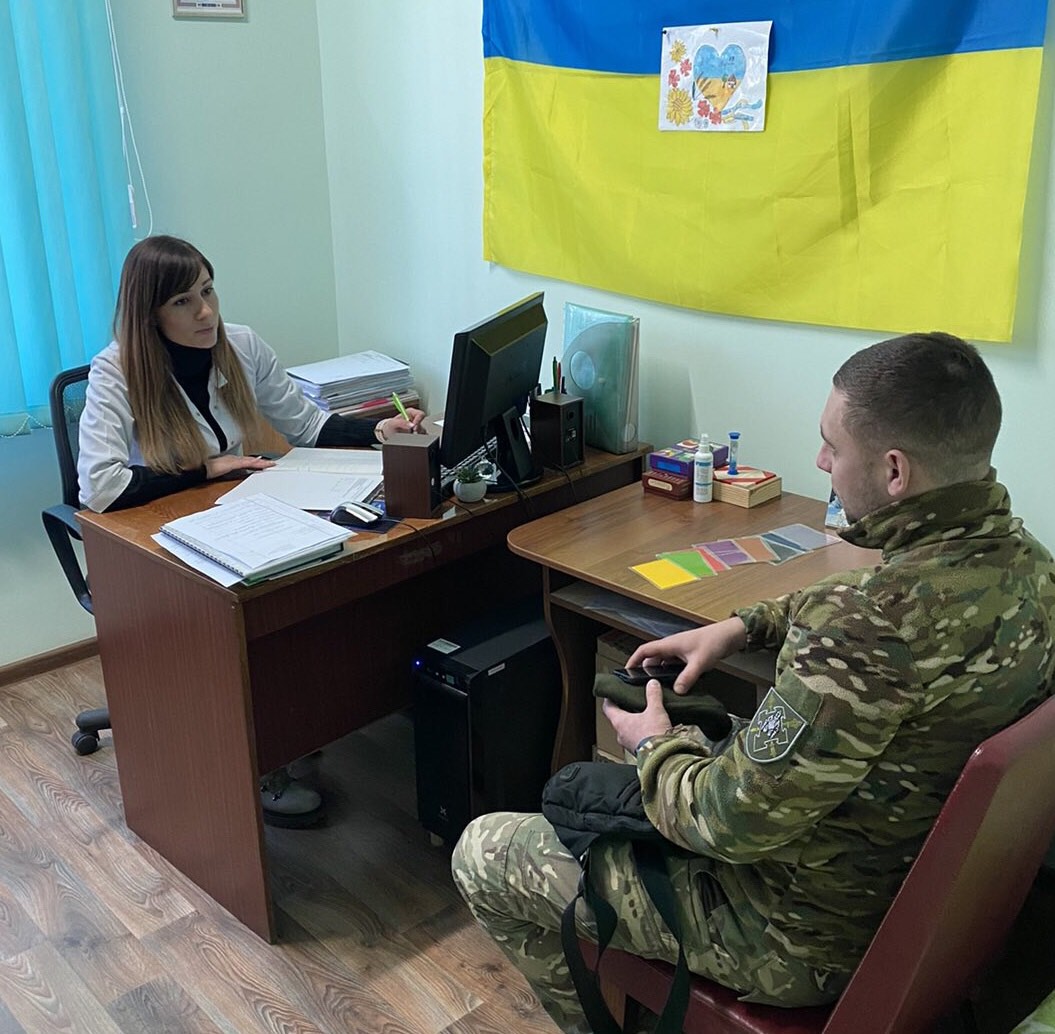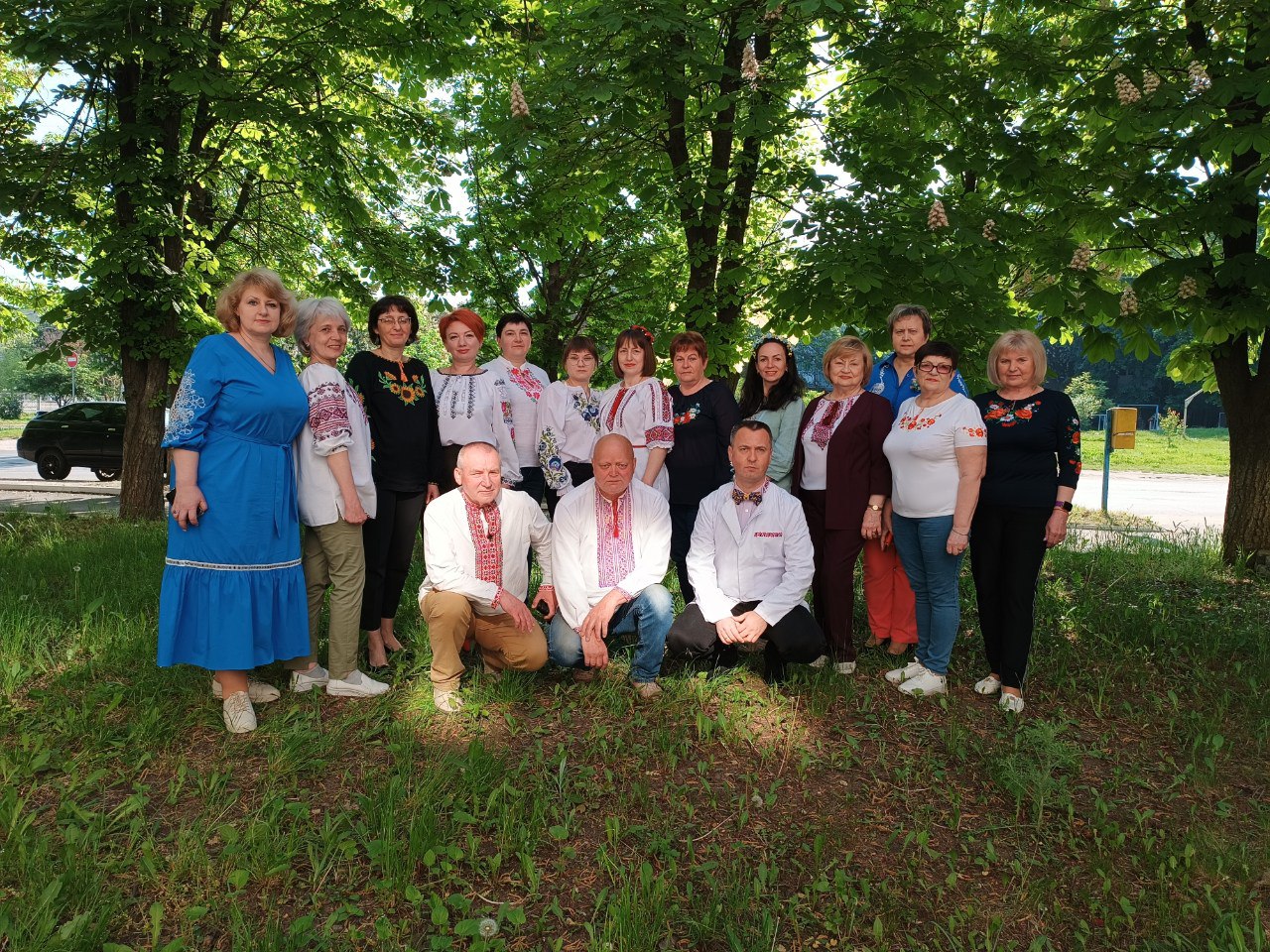15.02.2023
Continuous action is combat action that continues at a high level of intensity for an extended period of time. In continuous operations, the military must think, make decisions and act faster than the enemy. This continuous cycle of day and night actions is constantly connected with the influence of combat factors. Continuous combat operations force military personnel to perform their duties under adverse conditions, form appropriate behavior, which can lead to the occurrence of combat stress.
In fact, stress is a condition common to the human body, caused by any unexpected influences (internal or external) on its functioning. Most of these stressful conditions do not pose any threat to the body and are even useful as activators. But if such influence becomes excessive, then a state occurs, which most of us call stress, and it would be more correct to say - "distress", which negatively affects both the body and the psyche of a person.
 In combat conditions, the psyche being constantly under the influence of negative stress factors can develop into combat mental trauma with serious consequences for human health. Post-traumatic syndrome has negative effects on the soldier's psyche throughout his life. We emphasize that the combat activity of military personnel takes place in special and extreme conditions. Conditions that place increased demands on a serviceman are called special conditions of official activity. Such conditions include:
In combat conditions, the psyche being constantly under the influence of negative stress factors can develop into combat mental trauma with serious consequences for human health. Post-traumatic syndrome has negative effects on the soldier's psyche throughout his life. We emphasize that the combat activity of military personnel takes place in special and extreme conditions. Conditions that place increased demands on a serviceman are called special conditions of official activity. Such conditions include:
- work in unique conditions associated with danger to life;
- high responsibility for the decisions made;
- complication of performed functions;
- increasing the pace of activity;
- monotony of work in conditions of waiting for a signal to extreme actions;
- combination of actions with different goals in one activity;
- processing of large volumes and flows of information (the so-called information overload);
- lack of time to perform the necessary actions, etc.
All this, under certain conditions, can break the body's mental resistance, lead to an emotional breakdown. It is also known that if stressful conditions affect a serviceman for a long time during his stay in a combat environment, he may develop psychological exhaustion. Constant tension accumulates on the basis of the fear of death and the instinct of self-preservation. Feeling fear in battle is natural for any human being. Experiencing fear is a normal human reaction to the factors that cause it.
SIGNS OF COMBAT MENTAL INJURIES AND DISORDERS
When the body is unable to adapt to mental stress and circumstances arising under their influence, mental disorders arise. The basis of most mental injuries is mental exhaustion of military personnel. As a result, the usual mode of combat activity becomes overwhelming. The load, which used to be easily tolerated by a soldier already in the first hours, causes a feeling of fatigue. Military personnel become irritable, restless, conflictual in their relationships with comrades and the team. The ordinary language of the environment seems unpleasantly loud, the light is very bright, the weakness of the processes is noted.
METHODS AND MEANS OF PRIMARY PSYCHOLOGICAL REHABILITATION
Among the methods of psychological rehabilitation, an important role belongs to psychotherapy, which is conducted with the help of conversations with military personnel. The purpose of such conversations is to reassure a person, to show him the transitory nature of the changes occurring in his condition, to guide him out of a traumatic situation, to clarify the mechanisms of the occurrence of mental disorders, and to convince the serviceman of the real possibilities of self-regulation of some nervous processes. Psychotherapy is a type of treatment, when the main tool of influence on the psyche of a person is the word, the skillful use of which makes it possible to eliminate manifestations of mental trauma, to change the attitude of a serviceman towards himself and his condition. The essence of explanatory (rational) psychotherapy lies in the mental influence on the personality and its condition, in the reasoned conviction of a person, correction of his misconceptions, concepts, judgments, which became the cause of his maladaptation. When the first signs of a mental disorder appear in a person who has experienced mental stress, it is necessary first of all to calm him down, instill confidence in a successful outcome.
Next, it is necessary to form (create) in him an attitude to the possibility of eliminating deviations in mental state and behavior, to explain in an accessible form the essence of what happened to him, the meaning of certain rehabilitation measures. During the rehabilitation process, it is advisable to focus the serviceman's attention on positive changes in his condition.
Direct psychotherapeutic influence can be carried out with the help of special techniques: suggestion, persuasion, which activates psychotherapy. Conversations can be held individually or as part of a group of servicemen with similar conditions, preferably in the most relaxed atmosphere. In psychotherapy, optimal psychological contact, an individual approach, accounting for life and combat experience, personality traits and specific environmental conditions are very important. A mandatory condition is the establishment of full contact with a serviceman who has received combat mental trauma. A person should be given the opportunity to talk about his condition in detail, to feel that he is being listened to, sympathized with and wants to help.
The slightest hint of disbelief in what has been said, a skeptical attitude is simply unacceptable here. Assuring that "nothing serious has happened", that "everything will be fine", "that there is nothing dangerous and you need to pull yourself together", "hold on", etc., undermines the confidence in conducting the conversation. Such unsubstantiated, formal statements in such a situation are even harmful. Because a person feels that something is happening in his body and feels unpleasant and painful factors. An optimal psychological environment contributes to increasing the effectiveness of rehabilitation measures. Here it is important to create adequate ideas about the state of servicemen who have suffered mental injuries. In preventing mental breakdowns and restoring mental balance, a decisive role is played by the military serviceman's ability to adjust his psyche and manage his states in various environmental conditions. It has long been known that a pronounced emotional experience of joy or fear changes the pulse, blood pressure, color of the skin, sweating, etc. Words, language, imaginary images have a positive or negative effect on the functional state of various organs and systems in a conditionally reflexive way. The ability of a person to influence himself with the help of words and corresponding imaginary images is called mental self-regulation. It distinguishes two directions: first, to correct the functional state of servicemen in the presence of moderately pronounced psychoneurotic symptoms (sleep disturbances, high anxiety, emotional tension, low mood), avoiding apathy and depression; secondly, to increase the level of functional (psychoregulatory) capabilities of healthy servicemen in order to prevent the development of overfatigue phenomena. To reduce excessive neuropsychological tension or remove the residual phenomena of combat excitement, it is advisable to listen to or reproduce verbal formulas accompanying the development of autogenic relaxation in the mind. To increase the activity of military personnel, when, for example, there are signs of general fatigue, you can resort to listening or playing in your mind verbal formulas of stimulating action. Psychological self-regulation consists of two parts: general and special. The general part forms the skills of autogenic relaxation (inhibition) - a special phase state that allows you to significantly increase the effectiveness of the activation of ideas and used self-suggestions. It allows: to develop attention management skills (concentration, concentration, switching); purposefully operate with sensual images (feeling of heaviness, warmth, etc.); to arbitrarily regulate muscle tone and the nature of breathing; master the skills of rapid autogenous immersion and exit from this state. Exercises of the general part are used to relieve tension, fatigue, restore strength, and regulate vegetative functions. The special part is a complex of forms of self-suggestion that allow you to purposefully regulate the flow of mental processes and your emotional state, normalize the functions of the central nervous system. The use of special formulas for the correction of the functional state is, as a rule, individual in nature. The training of military personnel in the techniques of psychological self-regulation is carried out according to standard methods, the method of group classes and the performance of certain exercises. Let's consider the main methods of psychological self-regulation: self-conviction and self-suggestion. Self-confidence is the ability to subordinate one's personal motives to the requirements and interests of duty ("I must"; "I can"; "I can"; "I can endure"; "I can do it", etc.). Self-suggestion is the ability to suggest some thoughts, desires, images, feelings, states to oneself ("I am calm"; "I am comfortable and well"; "I feel cheerful"; "I am focused and collected"; "I am cheerful and confident" etc.) ). Other methods of mental self-regulation, which allows you to adjust the mental state, include: self-education, self-control, self-command, desensitization, distraction.
The effectiveness of psychological rehabilitation is determined by the timeliness and sequence of rehabilitation measures.

(с) 2024